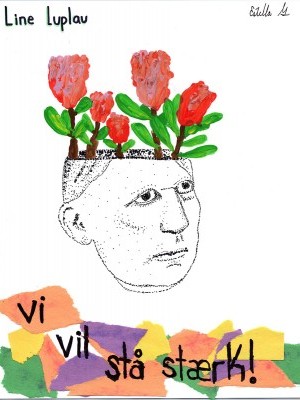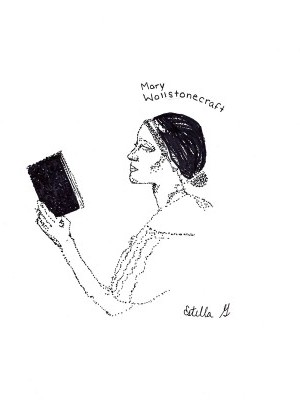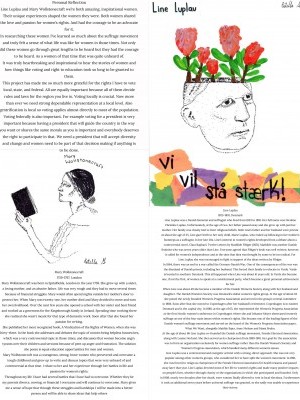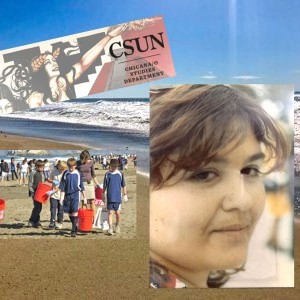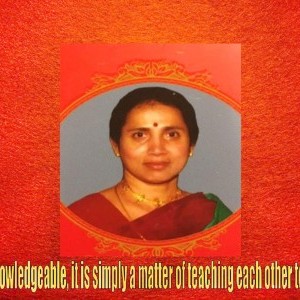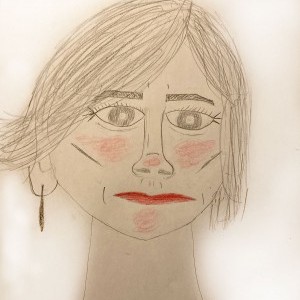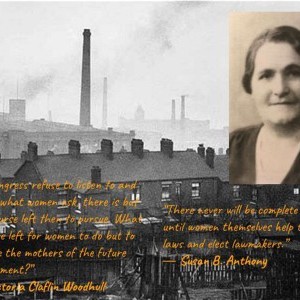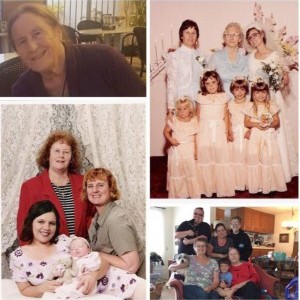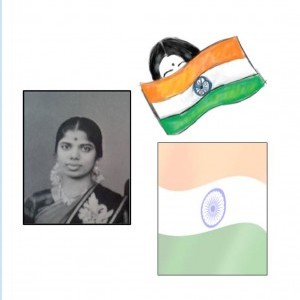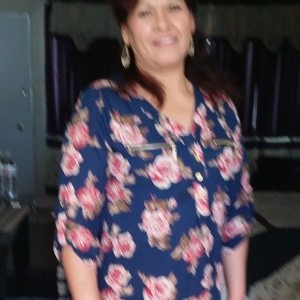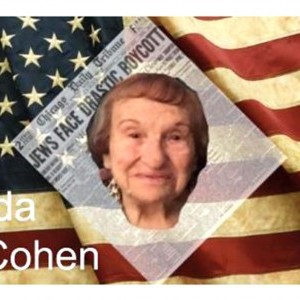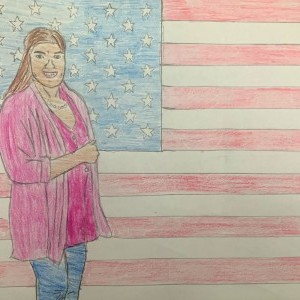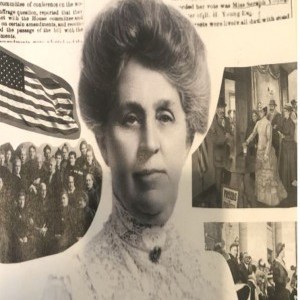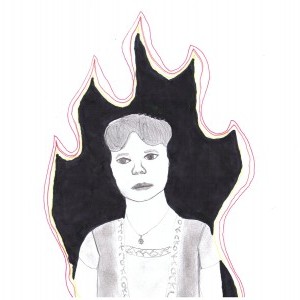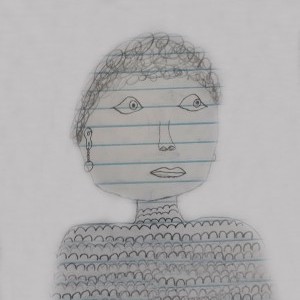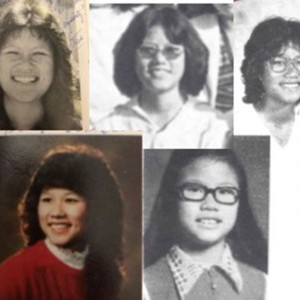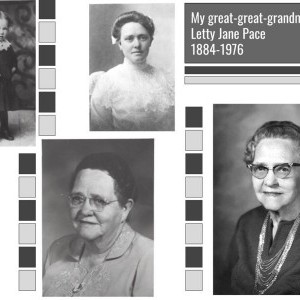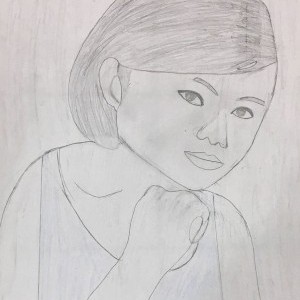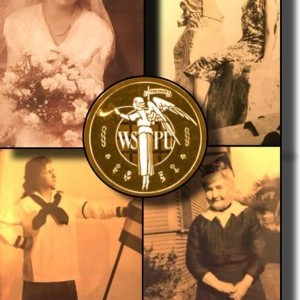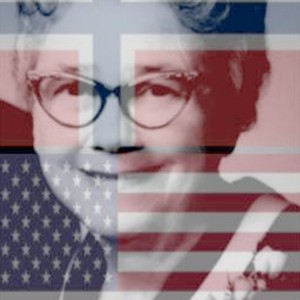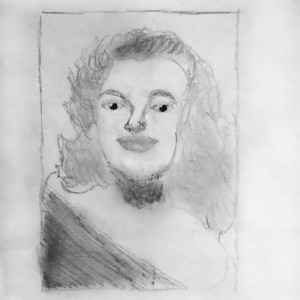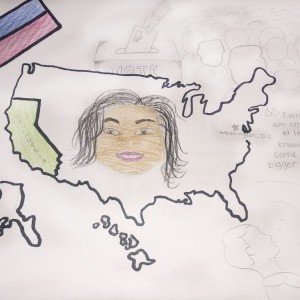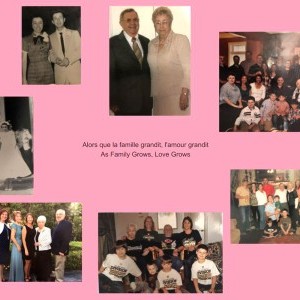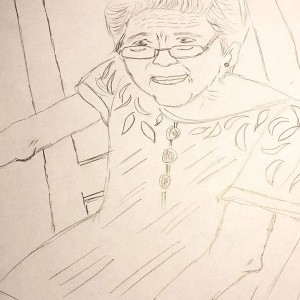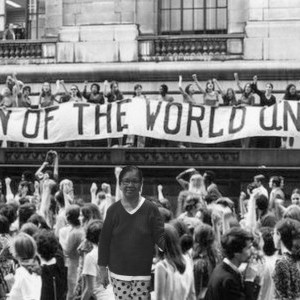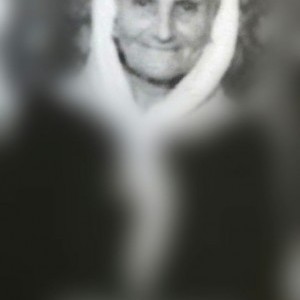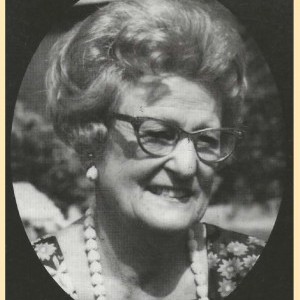Estella Garcia
Adolfo Camarillo High School | Camarillo, CA | 10th
Historical Figure I Admire
Line Luplau
Line Luplau was a Danish feminist and suffragist who lived from 1823 to 1891. Her full name was Nicoline Christine Luplau. Unfortunately, at the age of two, her father passed away and she grew up with just her mother. Her family was closely tied to their religious beliefs. Both Line’s father and her husband were priests. At about the age of 25, Line gave birth to her only child, Marie Luplau, who ended up following in her mother’s footsteps as a suffragist. In her late 20s, Line’s interest in women’s rights developed from a debate about a controversial novel, Clara Raphael, Twelve Letters by Mathilde Fibiger (1851). Mathilde was another Danish feminist who was seven years older than Line. Everyone agreed that Fibiger’s book was well written; however, it called for women's independence and at the time that idea was thought by some to be too radical. For Line Luplau she was encouraged to fight in support of the ideas written by Fibiger.
In 1864, there was an end to a war called the German-Danish War. One of the consequences of the war was the eviction of Danish priests, including her husband. This forced their family to relocate to Varde. Varde is located in southern Denmark. This all happened when Line was about 41 years old. In Varde she became one, if not the first, of women to speak at a constitutional party, which became a great personal achievement for her.
When Line was about 49 she became a member of the Danish Women’s Society along with her husband and daughter. The Danish Women’s Society was Denmark’s oldest women’s rights group. At the age of about 62 she joined the newly founded Women's Progress Association and served in the group’s central committee in 1886. Soon after that she moved to Copenhagen after her husband's retirement. Copenhagen is in eastern Denmark and is the capital city. In 1888, at the age of 65, she represented the Women's Progress Association at the first Nordic women's conference in Copenhagen where she and Johanne Meyer showcased women's suffrage as one of the four main issues within women's rights. She became one of the leading figures of the Danish women's suffrage movement and served on the board of the Women's Progress Association paper, What We Want, alongside Matilde Bajer, Anne Nielson and Massi Bruhn.
At the age of about 66 Line Luplau co-founded the Danish suffrage movement, Female Electoral Association, along with Louise Norlund. She then served as its chairperson from 1889-1891. Her goal for the association was to form an organization exclusively for women suffrage rather than the Danish Women’s Society and Women's Progress Association, which handled many different women's issues.
Line Luplau was a controversial and energetic activist with a strong, direct approach. She was not very popular among other women's groups, who considered her to have split the women's movement. In 1891, she was forced to resign as chairperson of the Female Electoral Association for health reasons and passed away later that year. Line Luplau devoted most of her life to women’s rights and made many positive impacts on people’s lives, whether through charity or the organizations in which she participated and founded. Only in 1908, nearly two decades after her death, were women finally allowed to vote in local elections. Furthermore, it took an additional seven years before universal suffrage was granted, so she sadly was unable to experience that victory.
Historical Figure I Admire
Mary Wollstonecraft
Mary Wollstonecraft was born in Spitalfields, London in the year 1759. She grew up with a sister, a loving mother, and an abusive father. Life was very rough and they had to move several times because of financial struggles. Mary would often spend nights outside her mother’s door to protect her. When Mary was twenty-one, her mother died and Mary decided to move and earn her own livelihood. Over the next few years she opened a school with her sister and best friend and worked as a governess for the Kingsborough family in Ireland. Spending time working there she realized she wasn’t meant for that type of domestic work. Soon after that she found her passion for writing.
She published her most recognized book, A Vindication of the Rights of Women, when she was thirty-three. In the book she addresses and debates the topic of women being helpless housewives, which was a very controversial topic in those times, and discusses that women become angry tyrants over their children and servants because of pent up anger and frustration. The solution she poses is equal education opportunities for men and women.
Mary Wollstonecraft was a courageous, strong, and brave woman who persevered and overcame a tough childhood and grew up to write and discuss topics that were very unheard of and controversial at that time. I relate to her and her experience through her battles in life and passion for women’s rights. Throughout my life I have had several battles that I have had to overcome. Whether they be my parents’ divorce, moving, or financial I overcame and will continue to overcome. Mary gives me a sense of hope that through these struggles and hardships I will be made into a better person and will be able to share ideas that help others.
What the Project Means to Me
Line Luplau and Mary Wollstonecraft were both amazing, inspirational women. Their unique experiences shaped the women they were. Both women shared the love and passion for women’s rights and had the courage to be an advocate for it. In researching these women I've learned so much about the suffrage movement and truly felt a sense of what life was like for women in those times. Not only did these women go through great lengths to be heard but they had the courage to be heard. As a woman of that time that was quite unheard of.
It was truly heartbreaking and inspirational to hear the stories of women and how things like voting and right to education took so long to be granted to them. This project has made me so much more grateful for the rights I have. To vote at local, state, and federal levels, all are equally important because all of them decide rules and laws for the region you live in. Voting locally is crucial. Now more than ever we need strong dependable representation at a local level. Also gentrification is local so voting applies almost directly to most of the population. Voting federally is also important. For example, voting for a president is very important because having a president that will guide the country in the way you want or shares the same morals as you is important and everybody deserves the right to participate in that. We need a president that will accept diversity and change, and women need to be part of that decision making if anything is to be done.
Explore the Archive
More From This Class
Click on the thumbnails below to view each student's work.Deadline Extended
There's still time to join Women Leading the Way.
Become a part of our storytelling archive. Enroll your class today.
Join the Project

